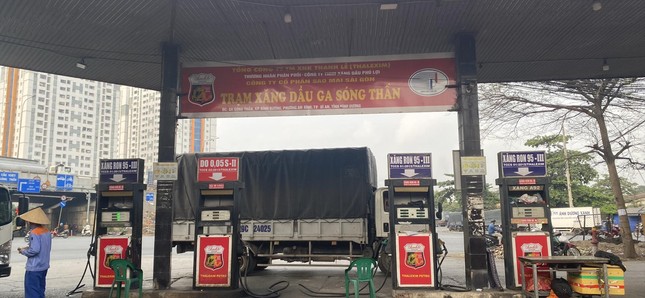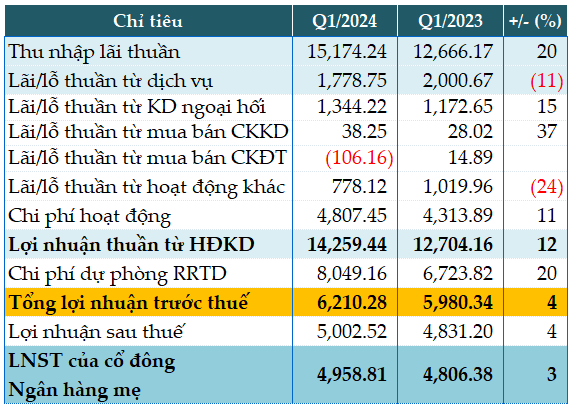Suggestions for businesses to decide retail prices
Regarding feedback on the construction of new government regulations on the petroleum business, the Ho Chi Minh City Department of Industry and Trade recently sent a letter to the Ministry of Industry and Trade proposing regulations on price management solutions based on the fluctuation of petroleum prices that are appropriate to the market.
According to the Ho Chi Minh City Department of Industry and Trade, in recent times, the department has received opinions from many businesses regarding the adjustment of petroleum price management cycles. Some businesses have proposed shortening the price management cycle, while others have suggested returning to a 15-day price management cycle. Some leading businesses and distributors have proposed a 20-day price adjustment cycle to align with the regulations on petroleum reserves.
The Ho Chi Minh City Department of Industry and Trade has also suggested that the Ministry of Industry and Trade study and develop regulations on the conditions for granting certificates to qualified petroleum businesses by increasing strict conditions and enhancing the capacity of businesses. The current regulations allow petroleum distribution businesses to operate without investing in infrastructure, terminals, warehouses, and distribution systems, as they can simply rent from other units. This convenient condition has led to the exploitation of loopholes by businesses, even those that do not meet the conditions but still receive licenses. Along with that, the Ministry of Industry and Trade needs to research and clearly define the rights and obligations of retail petroleum businesses to be included in the new decree.
Sharing with PV Tien Phong, Mr. Nguyen Hung Viet, Director of Nguyen Hung Viet Private Enterprise, believes that if the government is determined to fundamentally amend the decree on petroleum business, the market should be allowed to decide petroleum business operations. According to Mr. Viet, the retail sector should be separated from intermediary businesses and distributors.
If a business chooses to be an intermediary or distributor, it should not engage in retail. Allowing intermediary businesses and distributors the right to import, distribute, and retail petroleum is against the principles of the market and causes problems in business operations. Importing, distributing, and retailing petroleum simultaneously can also lead to market fragmentation. Along with the separation of retail activities, there should be separate cost allocations for each stage, including importation, distribution, and retail.

If petroleum businesses can determine their own selling prices, it will be a breakthrough in market management.
“Separating costs for each stage will help businesses have separate accounting. When a distributor sells a unit of petroleum, the Ministry of Finance and the General Department of Taxation will already know the environmental fees and all types of taxes that need to be calculated from the point of sale. For general agents and agents, the local tax authorities will only collect value-added tax and sales margin tax if there are increases or decreases. Separating costs for each stage will prevent price transfers, tax transfers to a third party, and avoid forcing retail agents to sell products at zero profit, ensuring that tax authorities collect the correct and complete amount,” analyzed Mr. Viet.
Representatives of retail businesses also believe that the market will only be stable as long as there are no more situations where businesses have to sell petroleum below cost. Management agencies also need to strengthen inspection and supervision of activities by intermediaries, distributors, and retailers. Along with separating the retail sector from intermediary businesses and distributors, businesses should be allowed to determine selling prices instead of having them regulated by management agencies as currently practiced. Allowing businesses to determine selling prices, as has been applied in the gas market for many years, will help businesses operate profitably and ensure that the market does not experience “resource depletion” as it has in the past.
Market mechanisms must be followed
In an interview with PV Tien Phong, economic expert Mr. Vu Dinh Anh believes that the current task for the management agency (the Ministry of Industry and Trade) is to develop a new decree with a vision. Specifically, the new decree must meet two criteria: ensuring national energy security and operating according to market mechanisms. In this regard, the root of the problem, which is that the state needs to create a truly competitive petroleum market, allowing the market to operate independently and regulate according to market principles, must be addressed.
In an interview with PV Tien Phong, a representative from the Ministry of Industry and Trade said that after the Prime Minister requested the Ministry of Industry and Trade to submit a new decree in March, the ministry has requested that the deadline be extended until June 2024 in order to comply with the procedures. “Obtaining opinions from ministries and departments as stipulated also takes two months. Currently, the Ministry of Industry and Trade will try to complete the draft decree and solicit opinions in March. Amending the regulations will improve market operations,” the representative from the Ministry of Industry and Trade said.
According to Mr. Anh, to ensure stable market operations, first and foremost, the intervention from management agencies needs to be limited. The market will operate well when businesses are allowed to operate voluntarily and follow the regulations. The role of management agencies will be inspection and oversight. As an example, the Ministry of Industry and Trade only needs to set a minimum petroleum import target for intermediary businesses and periodically conduct inspections. The business’s responsibility is to negotiate, choose the best time for importing petroleum, and supply the market with the prescribed quantity according to the delivery requirements of the management agency. Ultimately, intermediary businesses only need to ensure that they import the required quantity; whether they import or buy from domestic factories is irrelevant. The management agency will take action if the business fails to meet the delivery quantity. With good inputs, there will naturally be price competition among businesses.
“Along with rearranging the system and creating competition among intermediaries, the input price will be reduced to a minimum, benefiting both businesses and consumers. In addition, it is necessary to separate the retail stage from intermediary businesses and distributors while eliminating monopolies. This will stabilize the market,” suggested Mr. Anh.
Regarding the amendment of petroleum business regulations and suggestions to ensure smooth petroleum market operations without the need for continuous revisions due to shortcomings, Mr. Bui Ngoc Bao, Chairman of the Vietnam Petroleum Association (VINPA), believes that it is necessary to amend the management regulations of petroleum business activities, but the amendments must be thorough. Although Decree 80 was recently issued and has been in effect for several months, revisions have still been necessary despite adjustments to the pricing formula and the removal of the general agent model. The decree has several positive points when there are changes in the management period and when there is some compliance from businesses. Specifically, noteworthy is the updated adjustment period, which is more aligned with reality, reduced from 6 months to 3 months. The retail price adjustment period has been reduced to 7 days (on Thursday every week) instead of the previous 10 days. These updates have helped the domestic retail petroleum market to be more closely aligned with world petroleum prices.
“Decree 80 has increased competition in the market as well as competition in discounts, enabling businesses to optimize their supply sources by allowing retail agents to purchase petroleum from up to 3 sources. Despite these improvements, Decree 80 still does not completely address the current shortcomings of the petroleum market,” said Mr. Bao.
To ensure truly smooth market operations, according to Mr. Bao, it is necessary to amend state management regulations on petroleum business activities and allow the petroleum market to operate according to market mechanisms. Accordingly, unnecessary regulations related to administrative procedures in petroleum business should be abolished, and mechanisms should be put in place to ensure effective business operations.









































